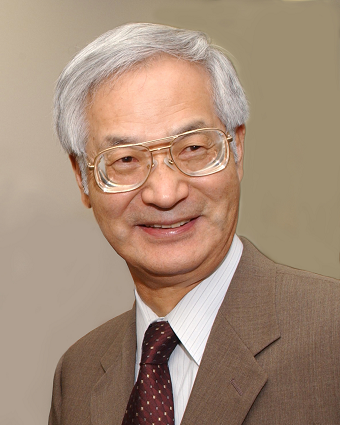Dr. Charles Pak and the making of a legacy
By Sharon Reynolds
Dr. Charles Pak, a world-renowned leader in mineral metabolism research, has made an indelible impact at UT Southwestern Medical Center as a trailblazer in the development of the improved management of kidney stones and osteoporosis.

Dr. Charles Pak
Dr. Pak, Professor of Internal Medicine, came to UT Southwestern in 1972 to establish the General Clinical Research Center and the Division of Mineral Metabolism. Over the past 45 years, his work has advanced translational research and his team has developed several drugs used worldwide – including Citracal for the prevention of osteoporosis and Urocit-K, the No. 1 drug to control kidney stones. By identifying key problems related to kidney stone disease, his team also devised a widely recognized diagnostic test used today.
“Dr. Pak has dedicated much of his life and career to UT Southwestern,” said Dr. Daniel K. Podolsky, President of UT Southwestern. “He has been a visionary in creating the Charles and Jane Pak Center for Mineral Metabolism and Clinical Research which will sustain clinical care, outstanding research, and education in the field of mineral metabolism for years to come. His own discoveries and development of new therapies have changed the way doctors treat patients with kidney stones and osteoporosis and are improving untold numbers of lives every day."
Dr. Pak’s dream of becoming a doctor began as a child.
“I was born in Korea,” he said. “During the Japanese occupation, my father, who was a Christian minister, escaped to the U.S. alone. Left behind with three children, my mother worked tirelessly to support us. Then after 10 years of separation, my family was reunited in Hawaii where my father had a ministry.”
Dr. Pak was greatly motivated by his parents’ example. His mother’s hard work as a midwife inspired him to study medicine. While attending medical school at the University of Chicago, he considered becoming a medical missionary. But it was his work in the nephrology research laboratory during medical school that awakened his passion for scientific discovery. After earning his medical degree and completing an internship and residency in internal medicine at the University of Chicago, he worked at the National Institutes of Health (NIH) for more than nine years and served as Chief of the Mineral Metabolism Section in the Endocrinology branch. At that time, research in mineral metabolism was a new field, so opportunities were endless.
After coming to UT Southwestern, he assembled a team and forged a path as a leader and innovator in the field of mineral metabolism. By the mid-’80s, his research blossomed.
Drug development was never Dr. Pak’s primary interest, but NIH training made it a byproduct of his clinical research. His team conducted laboratory research and clinical trials, ultimately obtaining new drug approvals from the Food and Drug Administration. These drugs drew in royalties to benefit the University, achieving national acclaim for medical advances in bone and kidney stone diseases. Dr. Pak has acquired numerous patents, with three currently pending, and has brought more than $80 million in drug development royalties to UT Southwestern, some of which continue to support the Charles and Jane Pak Center for Mineral Metabolism and Clinical Research (CMMCR) at UT Southwestern.
Taking great pride in collaborative research, Dr. Pak established the Endowed Professors’ Collaborative Research Support (EPCRS) program by funding 12 named endowed professorships in CMMCR. The holders of these endowed professorships, researchers from various groups on campus, compete for pilot grants annually to pursue pace-setting collaborative research in mineral metabolism. In 2017, Dr. Pak helped establish the Breast Cancer-Bone Initiative (BCBI), a research grant opportunity offered annually to investigators campus wide. So far, 21 research grants totaling $1.3 million have been awarded from these two initiatives.
“Drs. Greg Fitz, David Russell, and David Johnson were invaluable to me in establishing these programs,” said Dr. Pak. “With their support, and the leadership of Dr. Orson Moe as Director of the Charles and Jane Pak Center, I am confident that these professorship and grant programs will become integral parts of the Center and help ensure its long-term prosperity.”
Dr. Fitz is Executive Vice President for Academic Affairs and Provost, Dean of UT Southwestern Medical School; Dr. Russell is Vice Provost and Dean of Research; and Dr. Johnson is Chair of Internal Medicine.
Dr. Pak has donated more than $5 million to UT Southwestern to support the CMMCR through gifts from the Charles Y.C. Pak Foundation and the Pak family. By including UT Southwestern in his will through The Heritage Society – a special group of visionary friends that support UT Southwestern through planned gifts – he will provide millions more for the CMMCR through his estate.
In 2003, Dr. Pak stepped down as Director of the CMMCR, but he remains active in the Center’s programs. Many staff members have been with the Center for years, some since its inception.
Dr. Fitz holds the Nadine and Tom Craddick Distinguished Chair in Medical Science, and the Atticus James Gill, M.D. Chair in Medical Science.
Dr. Johnson holds the Donald W. Seldin Distinguished Chair in Internal Medicine.
Dr. Moe holds the The Charles Pak Distinguished Chair in Mineral Metabolism, and the Donald W. Seldin Professorship in Clinical Investigation.
Dr. Pak holds the Alfred L. and Muriel B. Rabiner Distinguished Academic Chair for Mineral Metabolism Biotechnology Research.
Dr. Podolsky holds the Philip O’Bryan Montgomery, Jr., M.D. Distinguished Presidential Chair in Academic Administration, and the Doris and Bryan Wildenthal Distinguished Chair in Medical Science.
Dr. Russell holds the Eugene McDermott Distinguished Chair in Molecular Genetics.